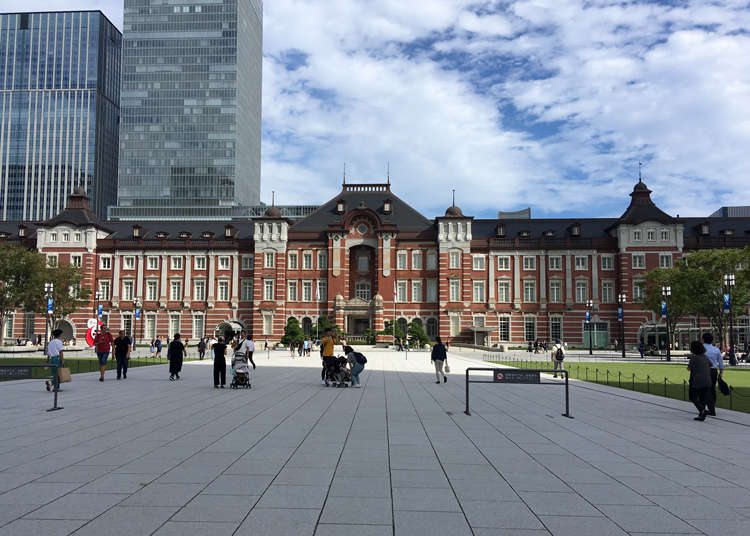
Tokyo Station is the gateway to Tokyo. With its many offices and commercial complexes, it is popular with people who enjoy fine food and shopping and it is also becoming a major tourist area.
This makes the Tokyo Station Hotel very convenient. Having gone through a major renovation is 2012 it has been transformed into a luxurious hotel that still retains its classical charm from when it first opened more than 100 years ago.
Now it is a hotel where many Japanese would love to spend the night at least once in their lifetime. In this article we will take a closer look at what makes the Tokyo Station Hotel so popular.
The Tokyo Station Hotel is steeped in history
The Tokyo Station Hotel opened its doors for business in 1915. In the more than 100 years that have passed, it has seen much history and is recognized as an important cultural property for its classical architecture and inclusion in the Japan Classic Hotel Association.
It has been a favorite of literary giants such as Kawabata Yasunari and Matsumoto Seicho because of its easy access being directly connected to Tokyo Station and unlike any other hotel being a place where you are able to watch from some of the guest rooms the people going around inside the station.
The exterior, which was damaged during the air raids of World War II, was reconstructed by conservation and restoration work projects begun in 2007 that lasted for about five years. Today the hotel looks just as it did 100 years ago. This hotel has a long and fascinating history.
Palatial luxury in a low-rise building in the middle of the city
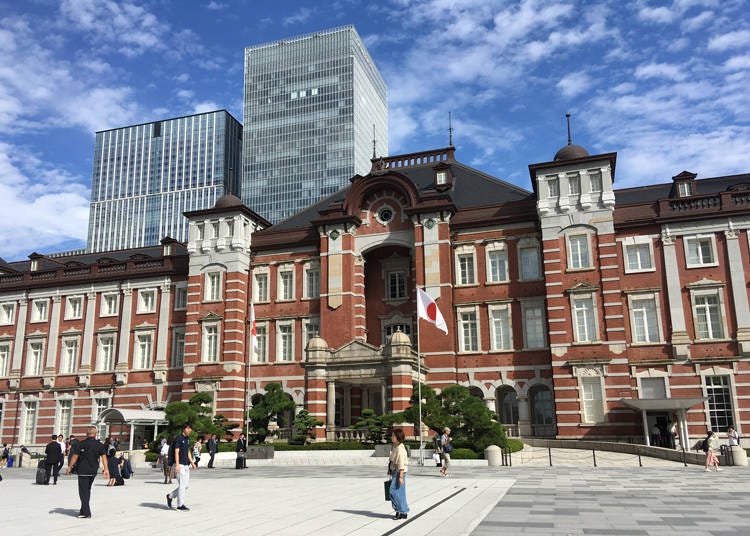
Tokyo Station Hotel is a building that has been restored to its original form. Favorably located, it is unusual for a commercial facility adjoining a station to be a low-rise building. It adds to its aura of luxury. The dazzling broad plaza in front of the hotel is as beautiful as one befitting a palace. It evokes a feeling of elegance.
Convenient! The hotel is only a 30-second walk from the station ticket gates
The hotel has a main entrance and a sub-entrance. The sub-entrance is only a 30-second stroll from the Marunouchi South Exit ticket gates. After exiting, just go to the right and you’ll immediately come to the hotel. It doesn’t get any more convenient than that.
After entering the sub-entrance you will pass through the lounge as you head to the lobby.
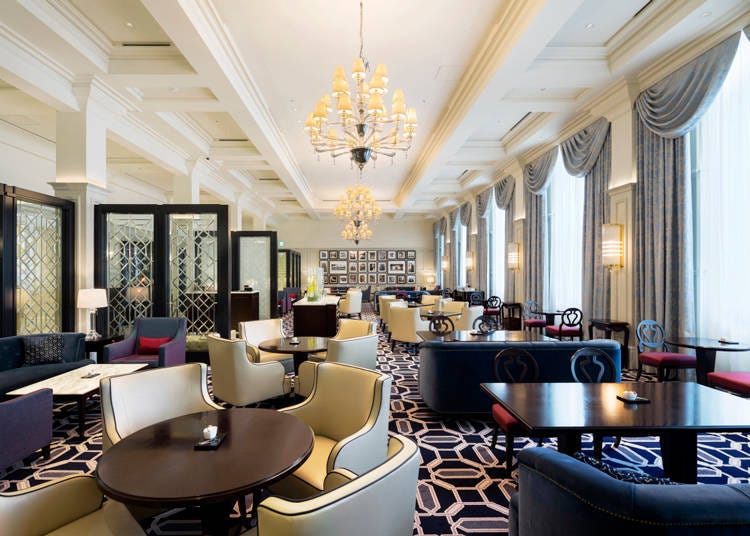
The lobby lounge, located between the sub entrance and the lobby, can be used by non-guests as well where they can enjoy breakfast (starting at 1,730 yen including taxes though service charges are separate), cafe time, and dinner (dishes start from 1,780 yen, drinks from 1,030 yen, including taxes though service charges are separate).
The interior has a relaxed, mature atmosphere. This is a good place to relax if you arrive before check-in time.
The lobby welcomes travelers in a spirit of hospitality
During the renovations in 2012 the hotel interior was completely made over. The entire first-floor lobby is elegantly styled in white.
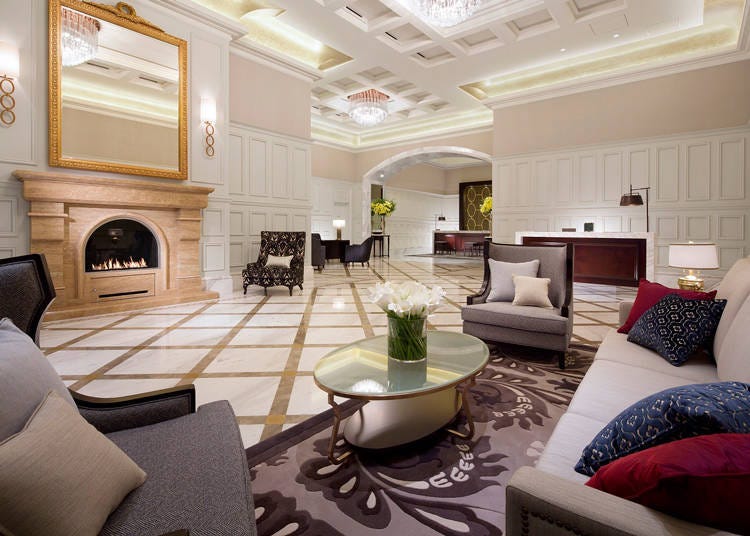
The moment you set foot in the lobby you will be greeted by its calm, spaciousness as you leave the noise of the station behind you.
The lobby is where guests are welcomed. The floor exudes the spirit of hospitality for which Japan is renowned.
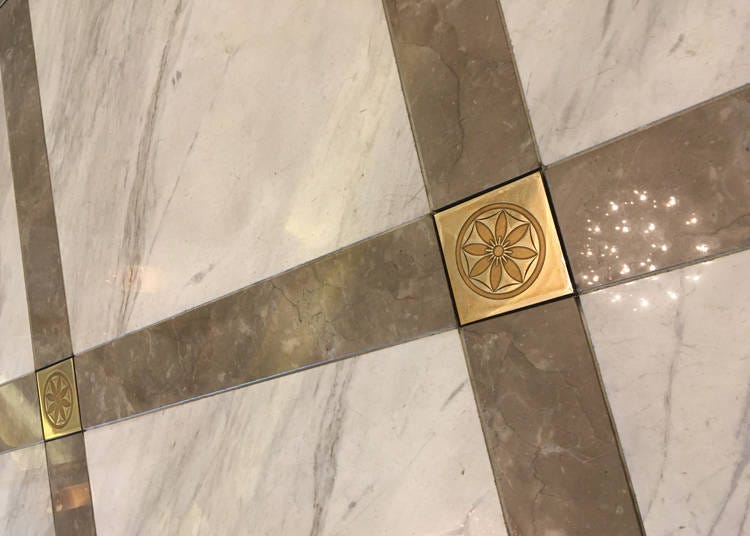
The design is that of the clematis flower and found only on this floor.
The flower is also known as the "traveler's joy" and symbolizes the hotel's desire that guests will find their stays to be pleasant ones.
The Concierge staff on the first floor can handle Japanese, English, and Filipino (depending on the day), and English is available at the restaurant in the hotel. There are many popular spots around Tokyo Station, such as Ginza and Tsukiji, and there are many popular ramen and rotary sushi restaurants which are popular among foreigners. Some facilities are open even late at night, so you can ask the concierge for recommendations and more information.
Enjoy one-of-a-kind views from the elegant rooms
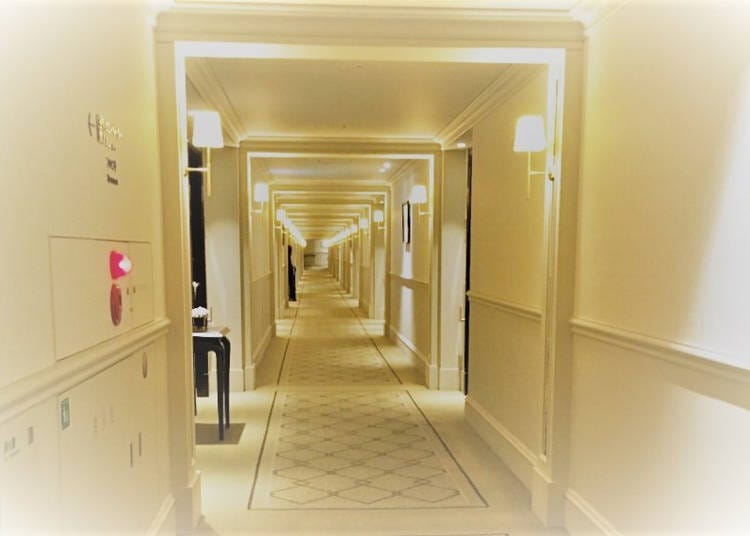
The long corridor leading to the guest rooms is another distinct feature of the hotel. Being located in the station building that is horizontally long, the corridors to the guest rooms are also long and narrow. A design based on European-style white is used throughout the interior of the hotel. The interior was designed by a British company that has extensive experience in designing interiors of old castle hotels in Europe.
Now let’s take a look at a guest room.
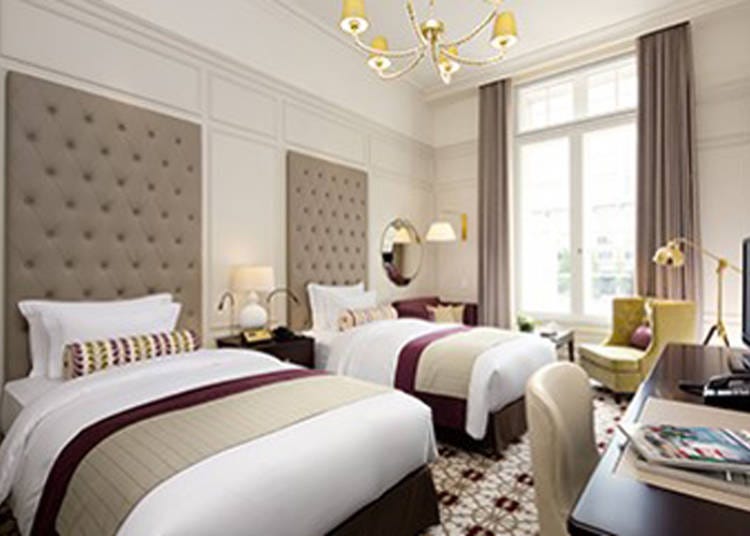
For this article we were shown the Palace Side Superior Twin which is the most common type in the hotel. The room incorporates modern aspects into a classic and sophisticated design. The high windows beyond the beds offer a view of the broad plaza in front of the main entrance of the hotel. On a fine day the greenery around the Imperial Palace can be seen from some of the rooms.

All the rooms have free Wi-Fi. There is also a "handy" brand smartphone in each room that hotel guests may use free of charge. Foreign guests find this very convenient as in addition to being able to make calls and access the Internet, it can also be used outside of the hotel.
Enjoy checking out the amenities in the room!
According to a spokesperson for the Tokyo Station Hotel, the hotel staff makes every effort to make guests feel at home in the hotel. Here are some examples of how they do that.

One way is by providing essential amenities for a relaxing bath. More than a year went into the making of them through a collaboration with the French perfume brand HISTOIRES de PARFUMS. This line of amenities is named "Est. 1915" (the year the Tokyo Station Hotel opened) which is intended to convey a "historical fragrance".
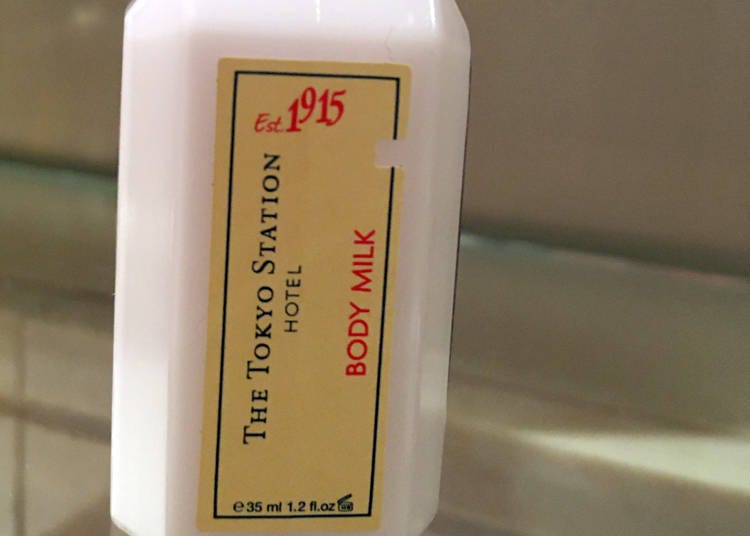
The label on this item is designed to look like a train ticket, which seems quite fitting for a hotel housed in a train station. If you look carefully, you will see that the ticket has been punched.
Also, the memo paper in each guest room resembles paper used for manuscripts. A member of the staff explained that the idea for this stemmed from wanting to convey the fact that the hotel was often used by literary giants.
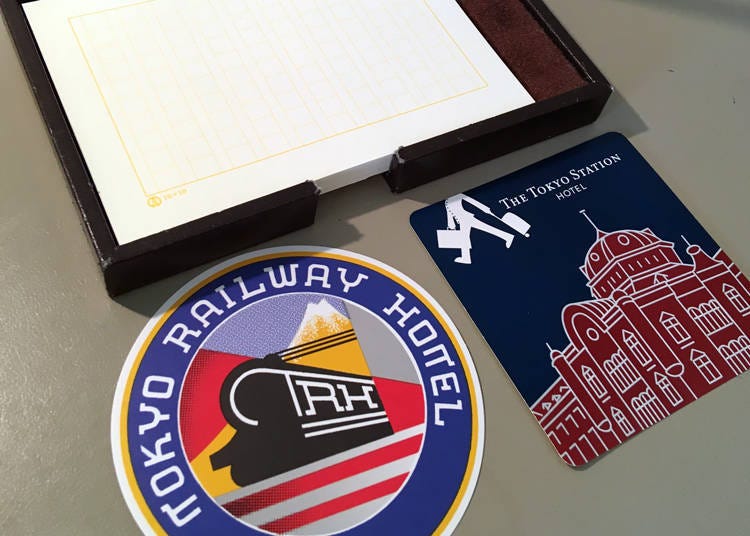
The modern and cute sticker in the lower left of the photo is a reproduction of the design used when the hotel was called “TOKYO RAILWAY HOTEL” in 1933 when it was reopened. That on the right shows the current hotel name and exterior design.
Enjoy breakfast at the central atrium on the top floor of Tokyo Station
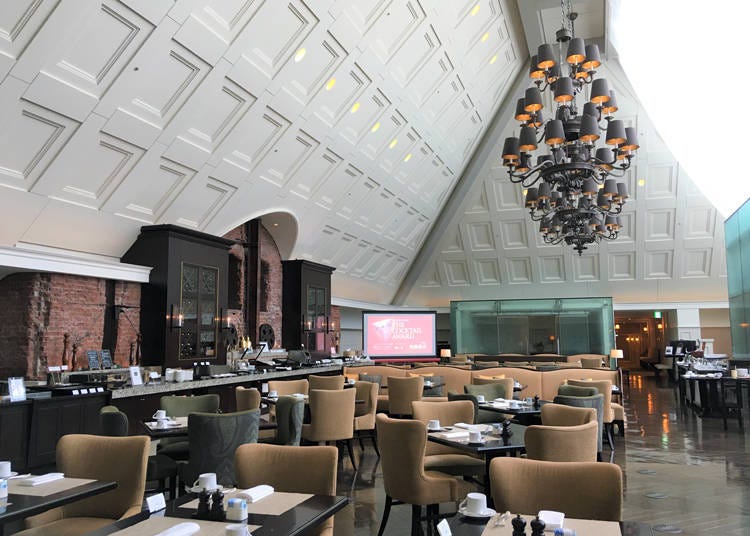
Next let’s look at the dining areas. After the 2012 renovation of the hotel was completed, THE ATRIUM, a dining lounge for the use of hotel guests, debuted on the top floor of the central part of the station.

Sunlight cascading in from the enormous windows creates a cheery morning atmosphere.
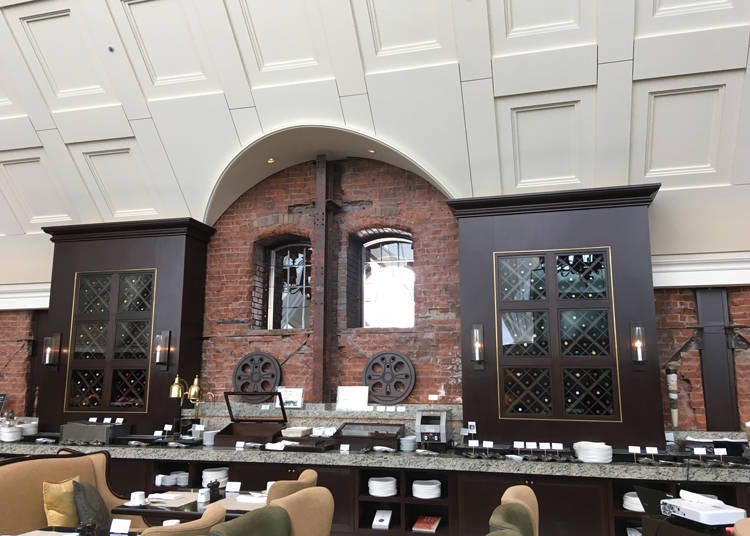
The brick section that can be seen in part of the wall is exactly the same as when the station was built and is an important cultural property.
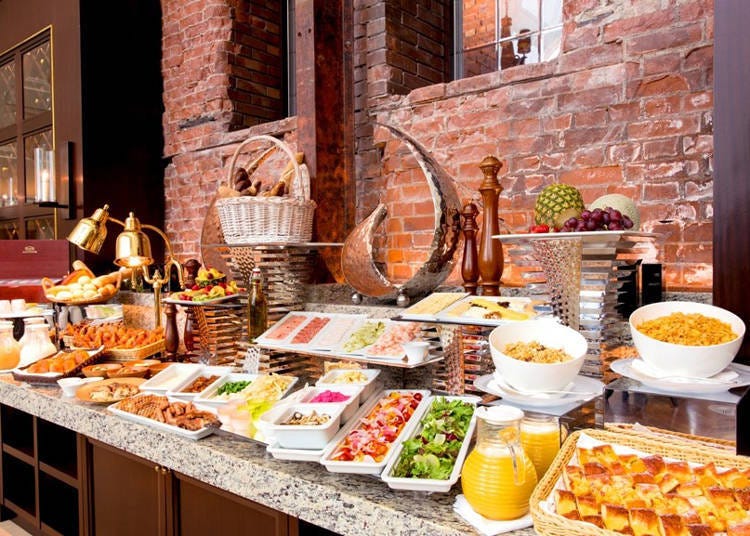
There are always more than 110 kinds of Japanese and Western food items here, and some guests stay at the hotel just to enjoy the breakfast. In the hotel industry, the percentage of guests eating in the hotel is said to be good if it is more than 50%. Here in the Tokyo Station Hotel that rate is about 70%. This gives you some indication of the high satisfaction held by the hotel's guests.
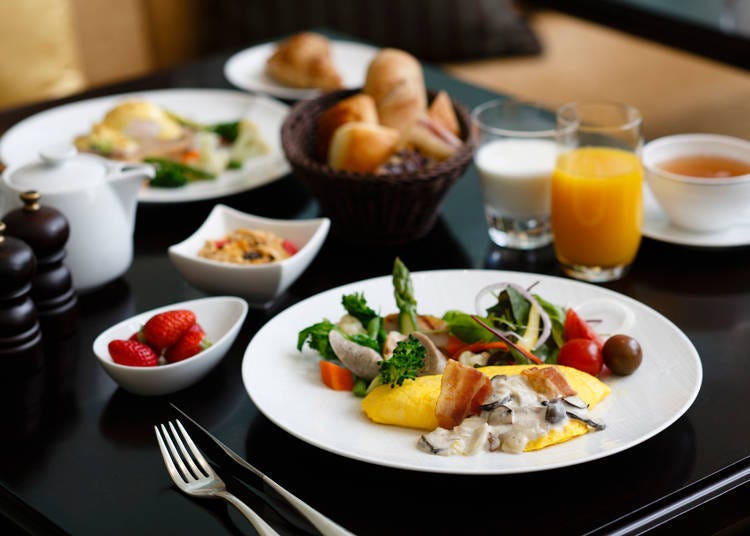
Most popular are the freshly-made egg dishes. These are prepared before your very eyes in accordance with your wishes. Breakfast is always an enjoyable part of staying in a hotel. To ensure the satisfaction of regular hotel guests each time they stay, the menu is regularly changed.
The Breakfast Lounge is basically for hotel guests, but only on Thursdays the hotel has an all-you-can-drink dinner plan called Thirsty Thursday (from 11,500 yen including tax but excluding service charge) which people not staying at the hotel can enjoy if they make reservations in advance.
This also includes a tour of the premises (approximately 30 minutes and included in the plan price) before the dinner, and is recommended for families and groups. Certainly this tour would be a good source for an enjoyable dinner conversation piece.
View the Tokyo Station Dome Ceiling Relief up close
You can also see the dome of Tokyo Station from inside the hotel. One place from where you can do that is the Archive Balcony that suddenly appears in a corner of the long corridor on the third floor guest rooms area.

The walls are decorated with historical photos of the hotel. This is what is on the other side of the windows.
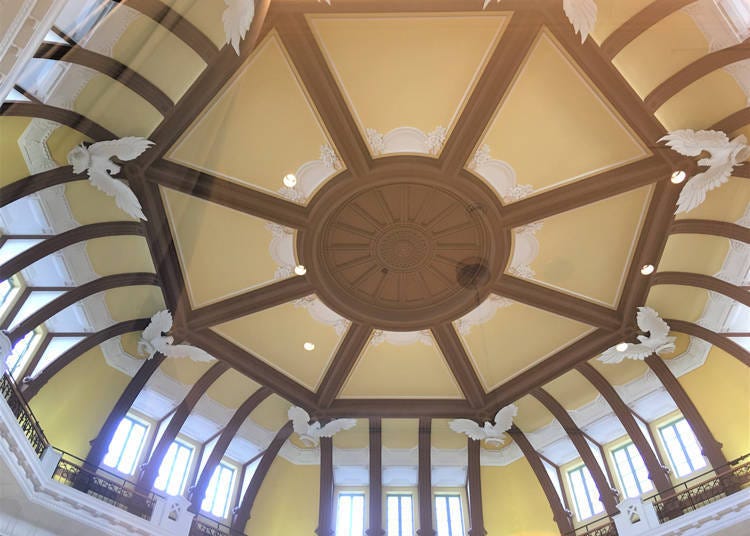
It is from here that you can get the closest look of the relief on the dome of the station which was restored to its former form in 2012. I wonder what people more than 100 years ago felt when they saw this relief.
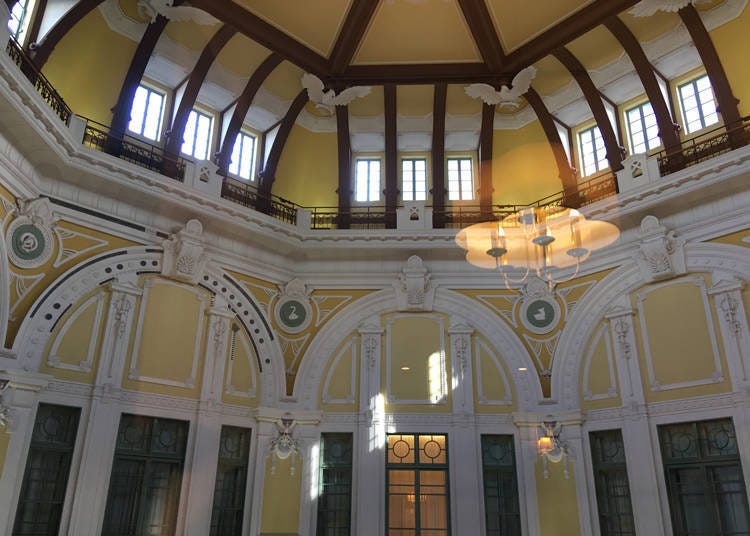
There are zodiac reliefs on each corner of the octagonal dome. Actually there are 12 signs in the Japanese zodiac, so four are missing. The four that are missing were discovered sculpted into another building designed by the same architect (by chance or intentionally?). I’ll leave that up to your imagination.
This dome almost burned down during the Second World War, but part of it remained, so some of the plaster parts were reused in the restoration of the South Dome.
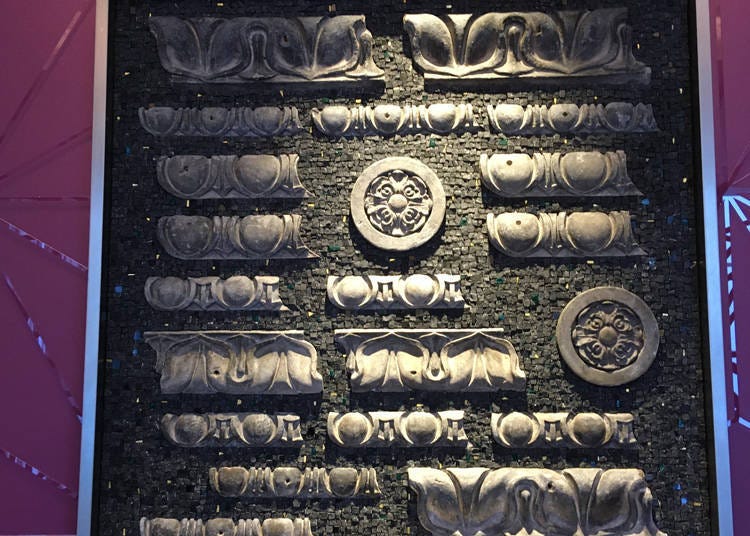
So Tokyo Station Hotel used parts of the South Dome Original Relief to create an original work of art. You can see it in the corridor on the second floor of the hotel.
Modern French in the main dining room
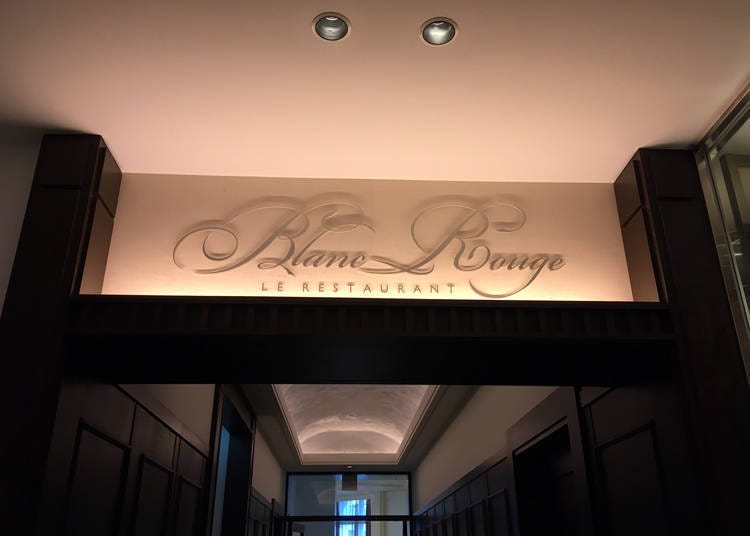
Blanc Rouge, the main dining room, serves French cuisine prepared using Japanese ingredients and techniques. The hotel spokesperson said that the restaurant has a large selection of domestically produced wines and that this restaurant situated in the heart of Tokyo seeks to provide a dining experience in which guests can enjoy delicious Japanese cuisine and wine. In addition to the wine, fine sake and shochu are also available to go with the cuisine.
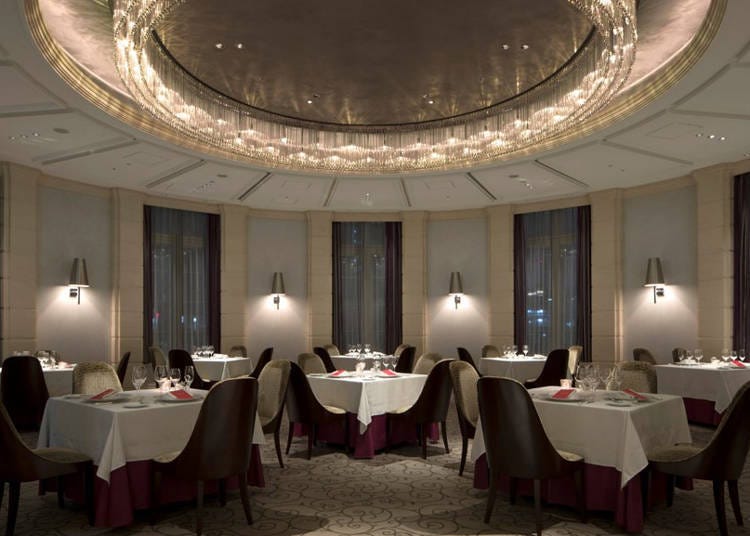
The main dining room is often used for celebrations and special occasions. The color theme of the interior is white and red in keeping with the name Blanc and Rouge of the restaurant. There are also 3 private rooms (from 11,000 yen-each tax included, excluding service charges) which are recommended for important dinners. Families with children older than elementary school age are welcome to dine here.
Relax at the bar during the nights of your stay
When spending the night at a hotel it is always relaxing to spend time in the bar. The Tokyo Station Hotel has two bars.
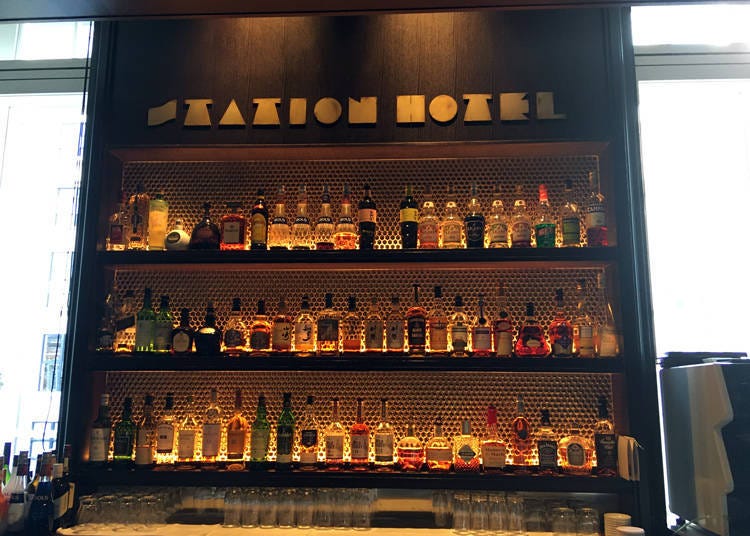
One is the Camellia, which has been around since the reopening of the hotel in 1951. STATION HOTEL depicted in modern script on the top shelf behind the bar was first used when the hotel reopened for business in 1951 and was kept when the hotel was renovated in 2012.
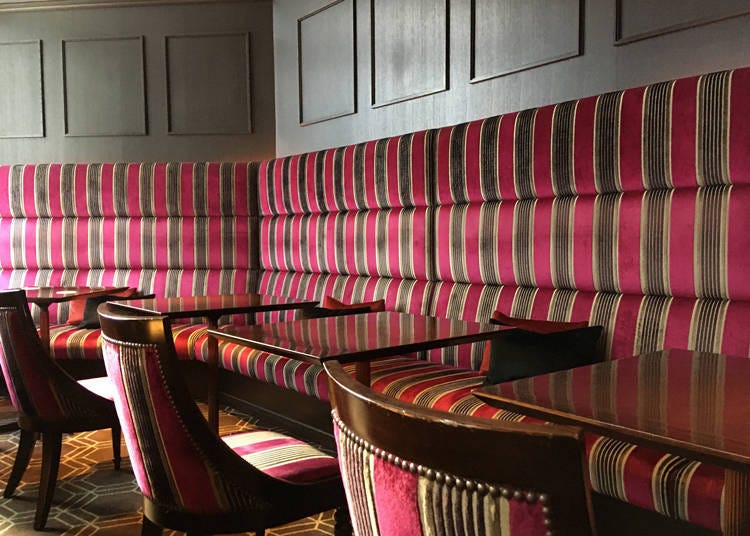
The interior has a relaxed European air to it. This is a popular place for shoppers to take a break and have a relaxing lunch (from 2,550 yen including taxes; service charge not included).
The other bar, located on the same floor, is the Oak. Camelia has a casual style to it whereas Oak is in a more authentic style.

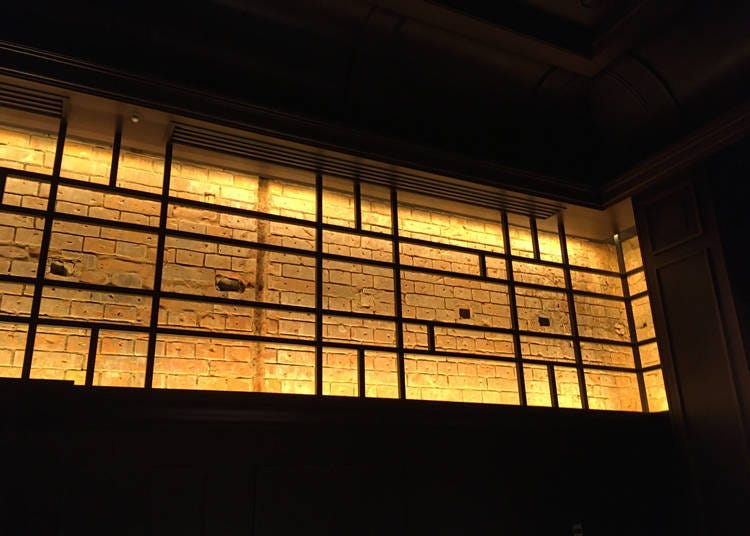
Toraya is a cafe and good place for getting souvenirs
There is a TORAYA TOKYO, famous for its sweet bean jelly, in the hotel. Toraya is a very old shop that has been selling Japanese confectionery for five centuries. It is not an exaggeration to say it is the most representative of Japanese confectioneries.
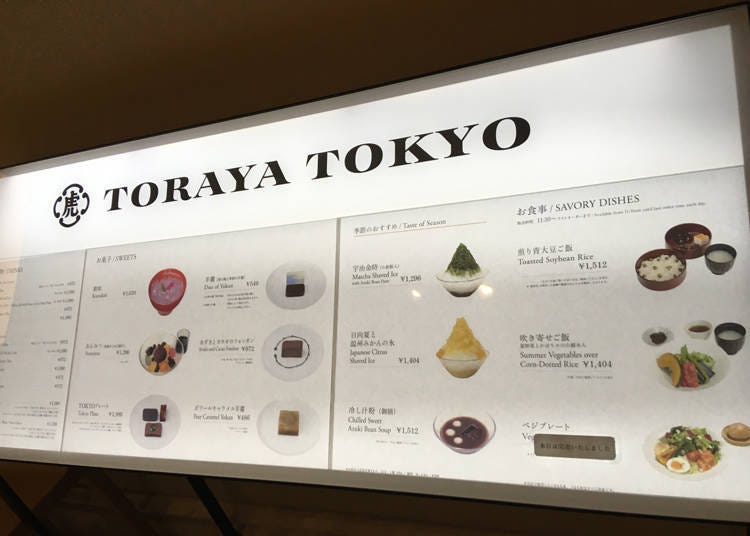
TORAYA TOKYO is both a cafe and Japanese confectionery; a concept shop that offers the same limited products as those offered in its Paris shop.
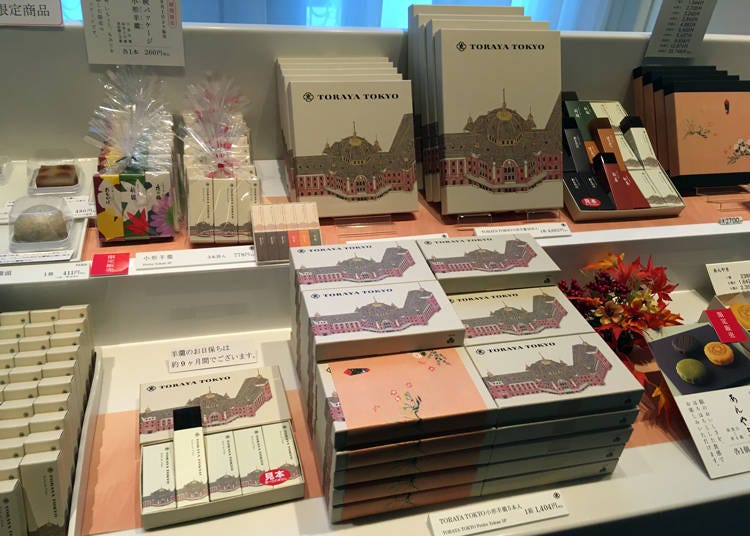
This popular assortment of sweet bean jelly comes in a package with a modern design. Even though it is also a cafe, in one part you can see the original brick wall of the building. TORAYA TOKYO is the only place other than THE ATRIUM breakfast lounge, which can only be used by hotel guests, where you can enjoy a meal in the surroundings of the old red brick wall that is an important cultural property.
Tokyo Station Hotel has the best access to Tokyo Station. This hotel is located in a great area for sightseeing that is especially attractive to foreign visitors. Here you can spend very memorable moments in a hotel with a long and colorful history.
-
Tokyo Station Hotel東京ステーションホテル
- Address 1-9-1 Marunouchi, Chiyoda-ku, Tokyo 100-0005
-
Nearest Station
Access: Directly connected to the south dome from the Marunouchi South Exit ticket gate on the 1st floor of JR Tokyo Station
A 3-minute walk from the Tokyo Metro Marunouchi Line Tokyo Station going towards the Marunouchi South Exit Ticket Gate
About 30 minutes from Haneda Airport to JR Tokyo Station (via Tokyo Monorail and JR Yamanote Line)
About 60 minutes from Narita Airport to JR Tokyo Station (via the Narita Express)
- Phone Number 03-5220-1111
Vacancy search, reservation
-
from 71,042JPY 1room, 2adults
Check with our partner site as the latest rates, rate details, and guest room requirements may vary.
Written by Jiei Kurabayashi, Dali Corporation
- Area
*Prices and options mentioned are subject to change.
*Unless stated otherwise, all prices include tax.
Popular Tours & Activitiess
-
Ad
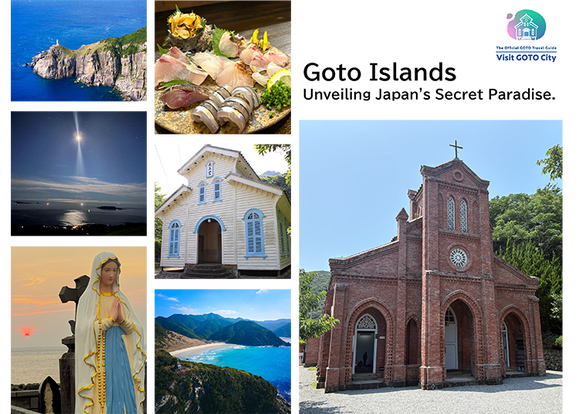
Walk in the Footsteps of Believers: A 4-Day Pilgrimage Across Goto Islands, Nagasaki Prefecture
by: Yohei Kato
-

Get Ready to Catch 'Em All! First Ever Permanent Outdoor Pokémon Park Opening Near Tokyo!
-

LaLaport TOKYO-BAY North Building Now Open: Shop, Dine & Enjoy Events at LaLa arena, Just 2 Stops from Disney
by: Wemmy Chau
-

See Asakusa and Tokyo Skytree® in a New Light at the "Také Akari" Festival (Winter 2025-2026)
by: Guest Contributor
-

A Travel Game Changer! Go Hands-Free Between Tokyo and Kyoto with LUGGAGE EXPRESS by JTB and JR Tokai
by: Guest Contributor
-

Enjoy Japan's Gorgeous Winter Lights! Ride the Romancecar to Shonan no Hoseki Illumination
by: Guest Contributor
Inspiration for Accommodations
-

Enjoy Mt. Fuji from the Comfort of Your Room! Recommended Ryokan with Mt. Fuji View
-

Stay Near the Cherry Blossoms! Hotels for Cherry Blossom Viewing in Tokyo
-

Family-Friendly Hotels with Free Shuttle to Disneyland: Convenient Access for a Magical Stay
-

Top Ranked Hakone Hotels with Mt. Fuji View: Enjoy Stunning Scenery from Your Private Space
-

Convenient Tokyo Hotels with Airport Shuttle: Ideal for Families and Heavy Luggage
-

Stunning Tokyo Tower View Hotels: Enjoy Spectacular Scenery from Your Private Space
-

Convenient Asakusa Hotels with Kitchens: Ideal for Extended Family Visits
-

Experience Luxury: Hakone's 10 Best Five-Star Accommodations
-

Enjoy Mt. Fuji Autumn Leaves! Top Hotels Near the Popular Autumn Leaves Corridor
-

Experience Hakone Fall Foliage from Your Room with Stunning Views
-

Ikebukuro Station Area Guide: Top 15 Spots When You Escape the Station's Maze!
-

Japanese sweet souvenirs: Check out these lip-smackingly incredible edibles from Tokyo!
-

Anime Merch, Limited-Edition Sweets & More! 10 Popular Souvenirs at First Avenue Tokyo Station
-

Secrets to Shopping in Japan: Guide to Annual Sales in Japan & Where to Shop
by: Miyu Shimada
-

Inside 3 "Boys Love (BL)" Cafes in Tokyo's Otome Road
by: Naho Jishikyu
-

What to Pack for Japan: 8 Essential Things for a Hassle-Free Trip
- #best ramen tokyo
- #what to buy in ameyoko
- #what to bring to japan
- #new years in tokyo
- #best izakaya shinjuku
- #things to do tokyo
- #japanese nail trends
- #what to do in odaiba
- #onsen tattoo friendly tokyo
- #daiso
- #best sushi ginza
- #japanese convenience store snacks
- #best yakiniku shibuya
- #japanese fashion culture
- #best japanese soft drinks


















